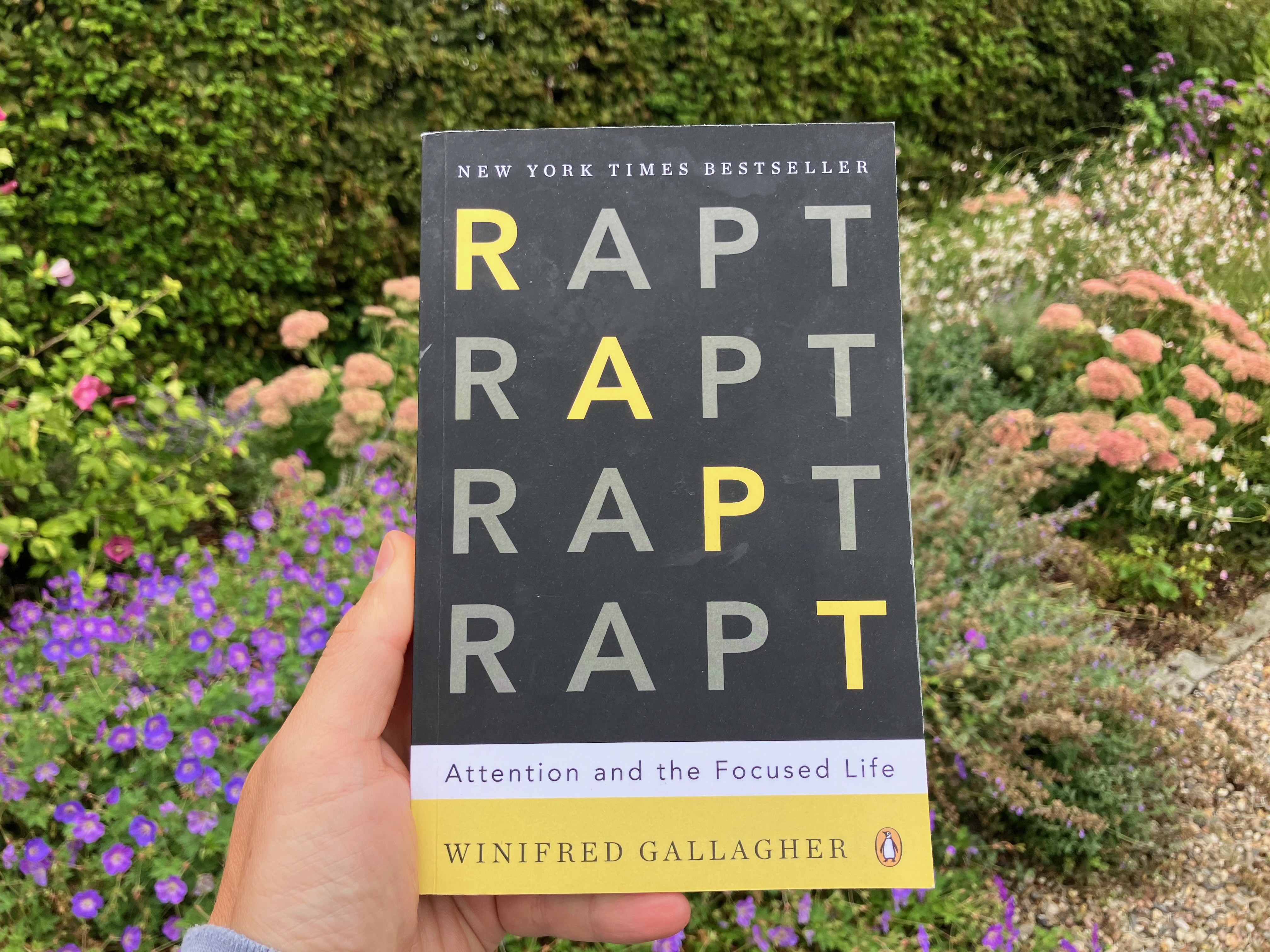Review "Rapt: Attention and the Focused Life"
In Rapt, Winifred Gallagher demonstrates the crucial role our attention plays in achieving happiness and a high quality of life. Instead of being dictated by external factors, we can consciously choose what we focus on—and thus actively shape our lives. A book full of everyday insights that makes it clear: Those who control their attention shape their reality.
Is attention the second superpower? I claim that storytelling and attention are the most effective soft skills.

About the author
Winifred Gallagher is an American author and science journalist who impressed me primarily with her clear, accessible language. She manages to explain complex topics from psychology and neuroscience in a way that immediately conveys the connection to one's own life. She became known through books such as Rapt: Attention and the Focused Life, in which she demonstrates the crucial role our attention plays in achieving satisfaction and a high quality of life.
Gallagher writes regularly for major magazines such as The Atlantic and The New York Times, but always stays close to the everyday lives of her readers. What I particularly like is that she combines research findings with practical examples, thus providing suggestions for how to live more consciously and with greater focus. Her approach is not a theoretical construct, but an invitation to actively shape one's own perception. Gallagher makes it clear: What we focus our attention on ultimately shapes our lives.
What is the book about?
In Rapt: Attention and the Focused Life, Winifred Gallagher fascinatingly demonstrates how crucial our attention is to our lives. Gallagher explains that we often believe external circumstances determine our lives – but in fact, our ability to pay attention shapes our experiences, our contentment, and even our happiness.
She emphasizes that what we focus on makes a difference: Consciously perceiving small moments, recognizing distractions, and choosing what's essential can have a profound impact on our well-being. The book reads like a guide to living a more conscious, present, and fulfilling life.
What's so great about it?
The book particularly appealed to me because it conveys scientific findings and repeatedly provides directly relatable, everyday examples. For me, the central message is clear: Those who learn to direct their attention wisely actively shape their lives.
What's annoying about it?
Even though Rapt offers many exciting insights, there are a few points that can be a bit annoying. Firstly, some examples and ideas are repeated frequently, which can make the reading flow a bit slow at times. Furthermore, the style can seem very analytical at times – anyone expecting a more narrative, “compulsive” book might find it dry.
Overall, however, the positive aspects outweigh the negative: the many aha moments and the clear insights into the interplay of attention, focus, and quality of life.
The Best Quote
A remarkably succinct quote from Rapt is:
We do not see the world as it is; we see it as we are.
This quote encapsulates what Gallagher discusses in the book: Our attention shapes not only how we perceive the world, but also how we experience our lives. It reminds us that the focus we choose directly influences our experiences, feelings, and ultimately, our happiness.
What have I learned?
Attention is a skill, like many others, and can be learned. Through attention, I control how I perceive life, who I am, and what my reality is. After pondering this several times, what had always been obvious became clear: the relevance of my decisions, what and to whom I give my time and attention.
I also learned many details: What attention is in general and what Rapt attention is specifically. What types of attention are there, and how do they differ? Furthermore, it is now clear what connection exists between learning and focusing. I could go on and on with this list. For me, this book is a true treasure trove of insights.
Why should everyone read the book?
Everyone should read Rapt because the book impressively demonstrates the crucial role our attention plays in our lives. I cannot stress this point enough: It is not external circumstances, but the way we direct our attention that shapes our experiences, contentment, and happiness.
The book not only provides scientific findings, but also everyday examples that are easy to understand. Those who learn to focus more consciously recognize distractions, make more intensive use of small moments, and actively shape their lives. For anyone who feels like life often “passes them by,” Rapt is a practical guide to increasing presence, clarity, and joy in life.
In short: It's an invitation to perceive themselves and the world more consciously—and thereby truly shape their lives.
Is attention the second superpower?
I claim that the combination of the two superpowers of storytelling and attention beats other soft skills.
Do you see it differently?